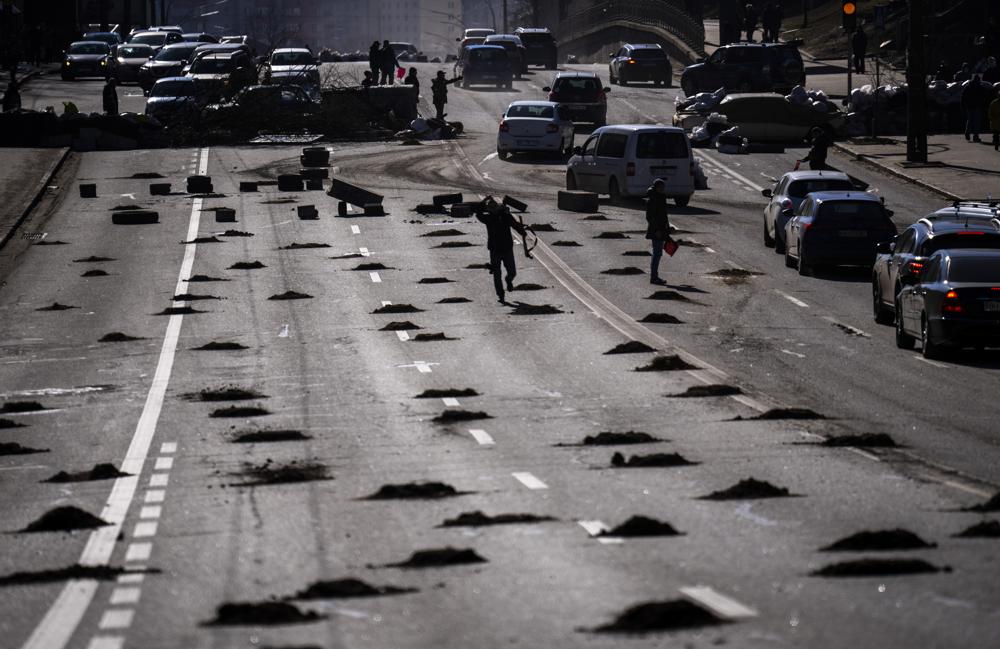
By Nandita Bose and Arshad Mohammed
WASHINGTON (Reuters) -U.S. President Joe Biden and Russian President Vladimir Putin will meet in Geneva on June 16, the White House and the Kremlin said on Tuesday amid sharp disputes over election interference, cyberattacks, human rights and Ukraine.
Earlier this month, Reuters reported that both countries were lowering expectations for breakthroughs at the superpower summit, with neither in a mood to make concessions on their disagreements.
“The leaders will discuss the full range of pressing issues, as we seek to restore predictability and stability to the U.S.-Russia relationship,” White House Press Secretary Jen Psaki said on Tuesday.
The Kremlin said in a statement that the two leaders would discuss bilateral ties, problems related to strategic nuclear stability, and other issues including cooperation in the fight against COVID-19 and regional conflicts.
Biden has previously said he wants Putin to stop trying to influence U.S. elections, stop cyberattacks on U.S. networks emanating from Russia, stop threatening Ukraine’s sovereignty and release jailed Kremlin critic Alexei Navalny.
The White House has avoided describing Biden as seeking a “reset” in relations with Putin, a term often used by former U.S. presidents as they seek to improve relations with Russia.
Rather, U.S. officials see the face-to-face meeting as an opportunity to tilt the relationship away from what they view as former President Donald Trump’s fawning overtures to Putin.
Russian officials told Reuters they regard the summit as an opportunity to hear from Biden directly after what a source close to the Russian government said were mixed messages from the U.S. administration that took office on Jan. 20.
Putin views U.S. pressure over Navalny and its support for pro-democracy activists in Russia and Belarus as tantamount to interfering in Russian domestic affairs.
Russia is also unhappy about U.S. sanctions, including those announced on April 15 that included curbs to the Russian sovereign debt market to punish Moscow for interfering in the 2020 U.S. election, cyber hacking, bullying Ukraine and other alleged malign actions which Russia denies.
The U.S. government blacklisted Russian companies, expelled Russian diplomats and barred U.S. banks from buying sovereign bonds from Russia’s central bank, national wealth fund and Finance Ministry. The United States warned Russia that more penalties were possible but said it did not want to escalate.
Russia denies meddling in U.S. elections, orchestrating a cyber hack that used U.S. tech company SolarWinds Corp SWI.N to penetrate U.S. government networks and employing a nerve agent to poison Navalny, who is imprisoned on charges he says are politically motivated.
Biden has also voiced concerns about the buildup of Russian forces in Crimea, which Russia seized from Ukraine in March 2014, and along the border with Ukraine, which have raised U.S. worries about a possible invasion.
Another topic likely to come up is Western outrage at Belarus, which scrambled a fighter and forced a Ryanair plane to land on Sunday in Minsk, where authorities arrested a Belarusian dissident journalist aboard the plane.
Russia has denied reports four of its citizens got off the plane in Minsk, which sparked suspicions of Russian involvement.
(Reporting by Susan Heavey and Nandita Bose; Writing by Arshad Mohammed; Editing by Doina Chiacu and Howard Goller)












